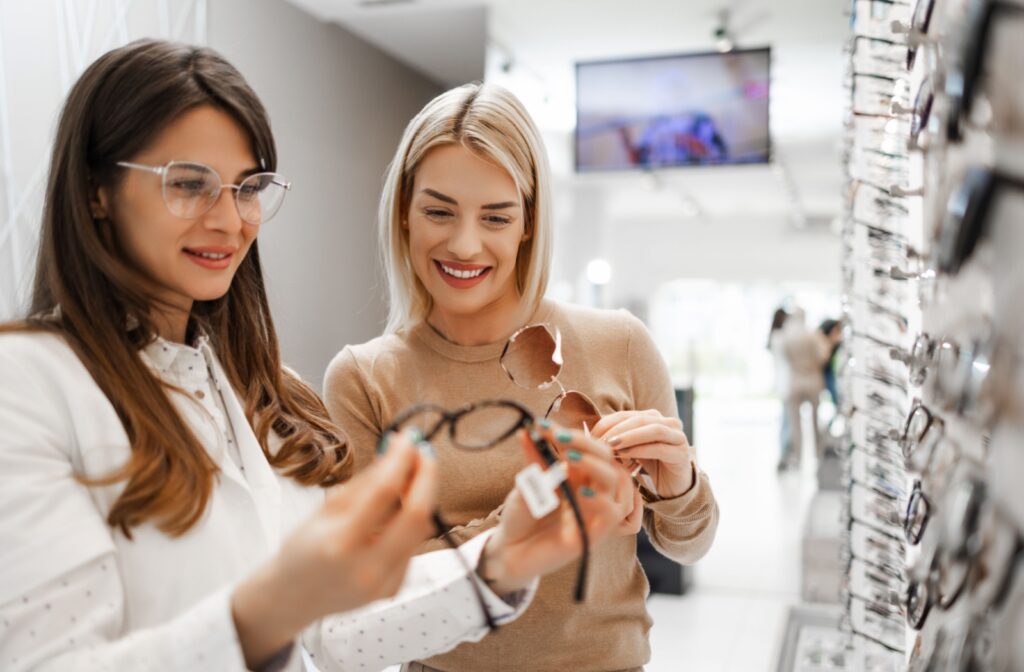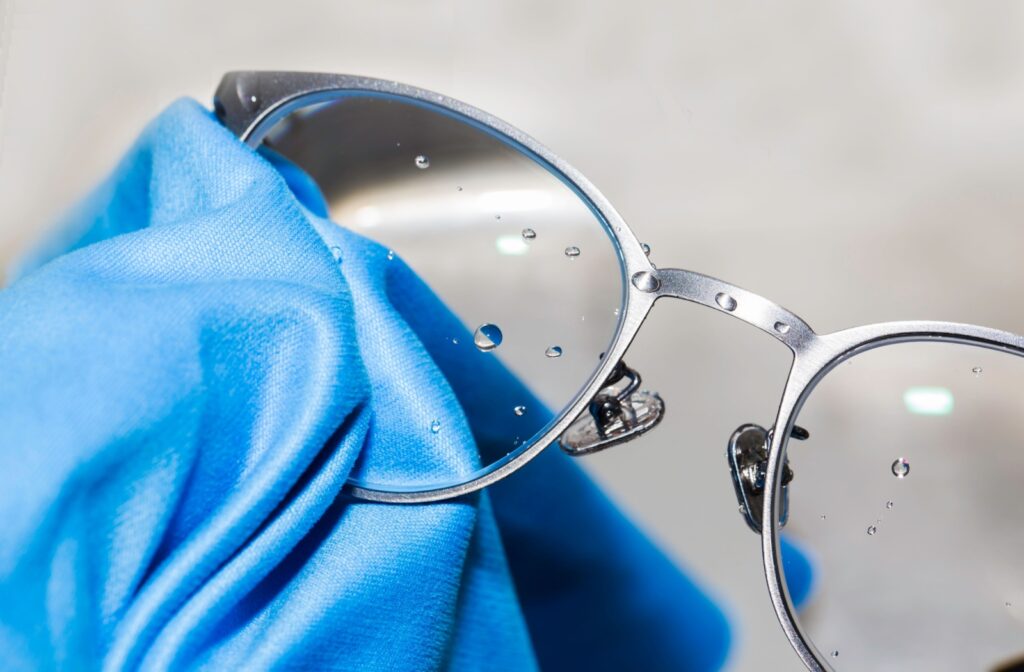Keeping your glasses clean is more important than you might think. It’s a key part of maintaining clear and comfortable vision. However, it’s easy to forget to properly and effectively clean your glasses!
To properly & effectively clean your glasses, use a microfiber cloth and gentle cleaning solution. Avoid hot water, as it can distort the frames, and make sure to thoroughly rinse and dry them when done. If you notice any damage, contact your optometrist to discuss repairs and replacements.
Why Cleaning Your Glasses Is Important
Smudges, fingerprints, and dirt don’t just block your view. They make glasses less effective overall. Dirty lenses scatter light, which distorts your vision and creates unwanted glare. It makes it more difficult to see clearly—especially if there’s a significant buildup on the lenses.
Regularly cleaning your lenses prevents this discomfort. It reduces how much time you spend adjusting the glasses constantly. Consistent care keeps your vision clear and makes sure your glasses function as intended. It also protects your eyes from unnecessary strain and makes everyday vision more comfortable.
How to Safely Clean Your Glasses
If you’re new to cleaning your glasses, you need to be careful. Hot water, scratchy cloths, and too much pressure can easily damage the lenses. Instead, try to follow these steps:
- Start by cleaning your hands with soap and water. Dry them thoroughly with a lint-free towel to avoid transferring dirt or oils onto your glasses.
- Hold your glasses under a gentle stream of lukewarm water. This washes away dust and debris while preventing scratches during cleaning.
- Spray both sides of the lenses with a gentle cleaner, like grease-cutting mild dish soap. Don’t use harsh cleaners, as they can damage lenses and frames.
- Use a clean microfiber cloth to gently wipe the lenses. Use a circular motion to avoid leaving streaks.
- Remember to pay attention to the frames, especially around the hinges and nose pads. These tend to build up grease, dirt, and grime.
- If any cleaning solution remains, lightly rinse the glasses under lukewarm water.
Once you’re done, check for spots and streaks. These steps only take a few minutes in total, and they’re a great way to keep your glasses clean. Regular cleaning doesn’t have to take long, but goes a long way.

How Often Should You Replace Your Glasses?
Even with regular cleaning and maintenance, glasses aren’t invincible. Wear and tear is a part of daily life. As your glasses get older, they become less effective, and there may be a point where they need replacing.
Typically, eyeglass frames should last about two years before needing to be replaced. However, lenses may need to be replaced more often, depending on a few factors:
- Changes in your prescription or vision clarity.
- Damage to lenses, such as scratches or peeling coatings.
- Broken or loose hinges or frames that can’t be repaired.
- Signs of discomfort, like having to squint or strain to focus.
- Lifestyle needs, including more durable or specialized lenses.
You should visit your optometrist roughly once every 1-2 years. This helps you stay on top of any significant changes in your vision—and lets your optometrist make sure you’re not developing underlying eye conditions. During your visit, your optometrist can determine if it’s time to replace your glasses or not.
Signs You Need to Replace Your Glasses
Eventually, you’ll need to replace your glasses, even if it’s been some time since your last eye exam. Make sure you’re regularly checking them for wear, tear, and any other type of damage.
Signs you need to replace your glasses include:
- Frequent squinting, blurry vision, or struggling to focus.
- Headaches or eye strain after wearing your glasses.
- Scratches, chips, or damage on the lenses.
- Bent or loose frames that affect alignment with your eyes.
- Lens coatings beginning to fade or peel.
If any of these sound familiar, it’s time to visit your optometrist. A damaged pair of glasses won’t properly correct your vision, and can even cause strain and overall discomfort.
Our Team Can Help
Taking care of your glasses is just one part of healthy vision. Whether you need an eye exam, glasses repairs, or a new set of frames and lenses entirely, our team is ready to help. Contact our team here at Dr. Goldstone Optometry today, and let’s find your future frames together! Book your appointment today, and we’ll work hard to keep your vision clear—just like you deserve.



